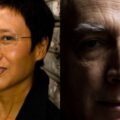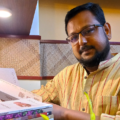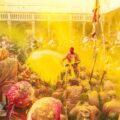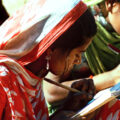An Anatomy of Freedom on India’s 75th Anniversary
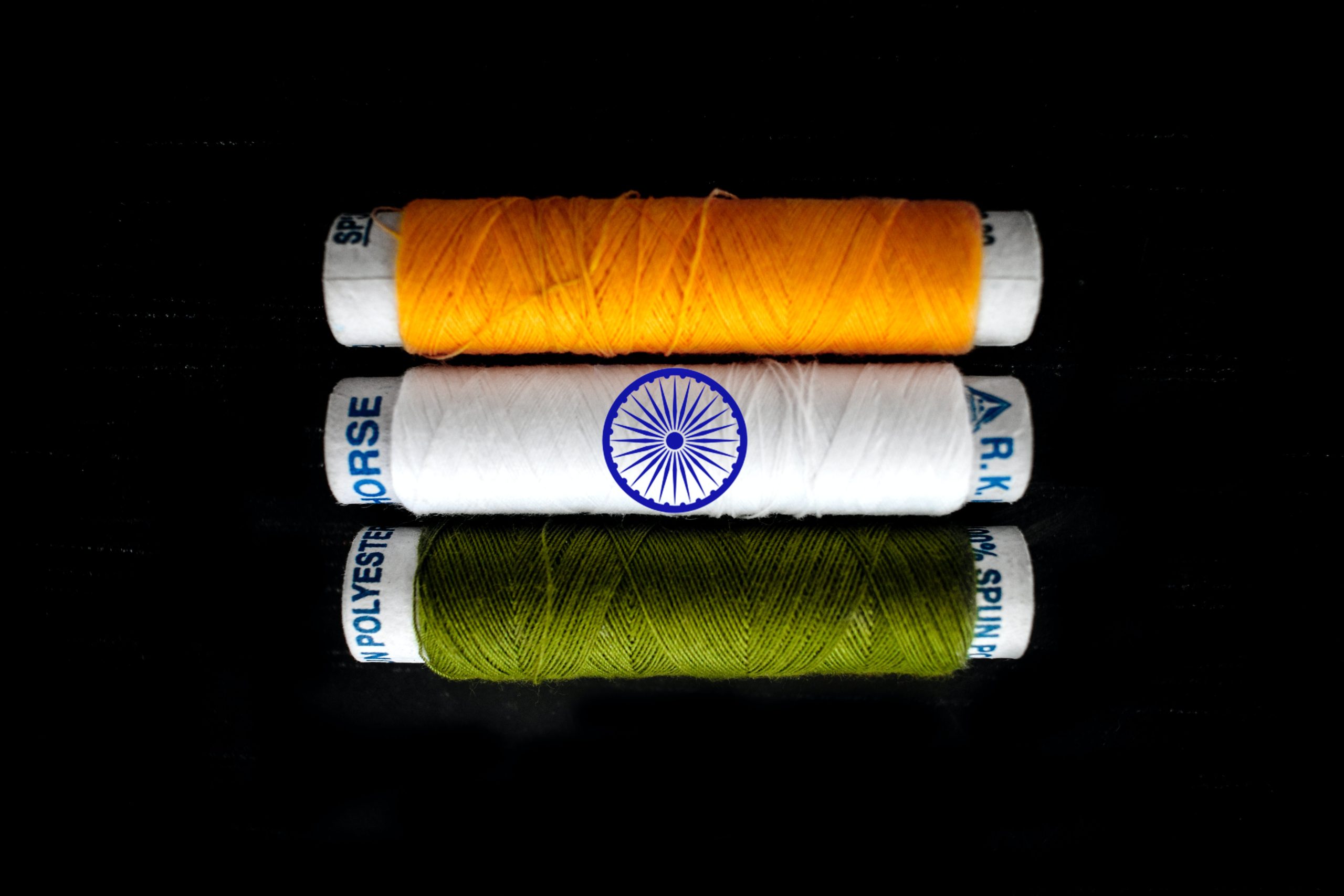
Rarely does a poetry anthology memorializing the 75th anniversary of a nation’s independence question the very idea of freedom, but that is precisely what editor Kiriti Sengupta has done with The Well-Earned (Hawakal Publishers, 2022). Featuring sixty-six Anglophone Indian poets, the anthology explores Indian identity, nationalism, history, politics, and culture with clarity and critical insight.
A reader unfamiliar with Indian anglophone poetry will find many clear footholds. The poems selected share an amiable openness of image and form, dispelling the myth that accessibility must always mean mediocrity.
An anthology that memorializes national independence must, almost out of necessity, explore the question of home. Yet the very perception of home is where the mind also turns out to be an absurd one. We try to cling to a city that has a heart of its own and feel safe. But the closer the embrace, the denser and more unfathomable it becomes. This is exemplified in the poem “Inside the Head of a City” by Gayatri Lakhiani Chawla, as she write:
The labourer without a roof stops brusquely chewing his tobacco
looking at the time, his eyes have lost their gleam
in them, we see the city’s skyline
a canvas of blue sea
across thousands of factory mills and scaffoldings
“Where do we go from here?”
The Well-Earned also explores the other side of home—identity, how we are constantly in search of a face amidst the mayhem and promise of history. But such a face appears to us like a morsel against the engulfing emptiness. Still, we do not lose hope, as in these lines from “A Forgotten Temple” by Geetha Ravichandran:
Sometimes, fragments of faith,
and a mere suggestion
can trigger the journey
to freedom.
Songs of liberation
resonate in forgotten spaces.
Many of the poets in The Well-Earned underscore the idea that the personal is political. Our genealogical heritage shapes us as much as our understanding of the world around us. Identity operates inside a maze of personal and public histories, as in Alka Balain’s “The Bequeathed Lineage”:
Not allowed a visa to travel beyond,
I wander lost in the labyrinth of
embellished genealogical legacy.
While searching for freedom, we often fail to realize that we are wandering in a labyrinth. There is no escape. Caught up in the kitsch of the capitalist system, the cacophony hammers our desire to run, to escape, to go for more. People rarely ever celebrate silence, forget about the rat race. Mechanized civilization keeps replacing the natural flow of life. But what would happen if we were to embrace the organic flow. As Mani Rao puts forth in her poem “But”:
Ask if a river is choked by the banks
or propelled, longing for the ocean
The poems in The Well-Earned are characterized by their open structures, conversational styles, candid topics, corporeal symbolism and imagery, political and social assessments, and their radicalism—both in their ideas and the ways of life they present to the reader. One such example is “Kalkatta” by Nikita Parik:
I cut my city
into a vertical slice:
a bite of metro rail,
sprinklings of steel structures
Parik investigates through the lens of corporeality and does not think of plunging into a utopia. It is the huff and puff arising out of the anger, love, suffocation, right. A large part of the poetry in The Well-Earned likewise relies on the conviction that words and craft should be utilized as political devices.
In the introduction, Sengupta writes: “We, the educated populace, are continually striving to be called mavericks. But unfortunately, liberated India hasn’t helped us become nonconformist or unorthodox. The perception of freedom varies—recognition of autonomy enjoys a broad spectrum in human psychology.” In a world where democracy and liberty are under attack, the threat of orthodoxy exerts an apocalyptic possibility. Sengupta writes, “The gravity of freedom cannot be overstressed—liberty is essentially a hard-earned privilege.”
Is there a translation of the word “freedom?” Is there a Tamil translation? A Punjabi one? Urdu? Bodo? Malayalam? If there is, why doesn’t the constitution acknowledge freedom in all these tongues and identities? Or is freedom in India nothing more than a display of patriotism, hoisting the flag and singing Vande Mataram? “Azaadi” by Farooq (translated by Jyoti Bachani) uses repetition for its power, the knotting phrases fill the empty bottle of the poem’s idea—the last drop of leftover freedom:
Azaadi in their fragrance
Azaadi in each and every drop
Relief for sore eyes
Azaadi in her body and soul
I get drunk silly from the
Azaadi in an empty bottle
Every path set alight
Azaadi dancing in sparks
Freedom, if translated, will it flame an assuring hope? What would it be then for the deaf? If read, would they like to hear the sound of it? For the dumb? If heard, would they harbor the desire to pronounce it? For the blind? If they could listen to and say it aloud, would they want to see how it looks? All of it seems like a quest into optimism.
“Can names lead me / to the anonymous?” Sengupta writes in “Rosary.” The more we seek our safe space—our home—the more comprehensive the anonymity grows. Home is the spectre that haunts Independent India. Whose identities are welcome? Whose home is this, and who is safe? Selective freedom and liberty, however, are not plausible. In Tabish Nawaz’s “Togetherness,” the poet talks about how the traces left behind from parting are devoid of any differentiation:
On separation, we were as much together as apart
as if we carried a long stick between us,
both tied at their ends. Our path staggered into
stories of footprints.
Shikhandin in her poem, “Immigrant,” meditates on the shards of memory that excise a body in transit between the edges, probing the distraught spaces on the shore by the sea. The vastness that remains unknown, the cacophony which is an illusion, and the verisimilitude which is a lie act as the wave crashing against the ruins of our hearts.
Hymns of home run
adrift on seasonal winds. Memory
is a pile of pigments spilling
into time’s seas. What anchor keeps
me from leaving this far shore?
The home is nothing but a figment of delusion, and displacement has robbed people of their identity.
The anatomy of India reveals certain inferences about the nature of freedom.It helps determine the variables allowed to a personality, to a person’s hopes and aspirations. It is however a one-dimensional body, an identity as thin as a sheet of paper. This of course benefits those in power. Because it encourages a multiplicity of variables and disrupts the one-dimensional model, freedom in India remains incomplete, under-developed, under-nourished, thin, weak, malleable for those with the will to twist and distort it. This model is ruled by and for fear as Swati Pal retorts in “Imprisoned”:
I fear the words I speak and
write would enslave me.
For freedom, there can only be
deafening silence. Also, stillness.
But are they free?
People are disillusioned. They cling to the simulacrum of development. Dreams of growth and freedom get lost in translation as their cultures are wiped out in favor of an absurd, disneyfied reconstruction of being a great nation. The people are enthralled by a beau idéal freedom while their entrapment continues.
Yet, even in the trap, one cannot help but dream of freedom while lending an ear to the soothing Bhatiali folk river songs sung by boatmen replicated in the cover photograph of The Well-Earned by Plabon Das. Two silhouettes standing against the dawning silence plant the dream of a new day, a new light.
What is freedom but a word, wreathed to people’s skin, an inseparable part of their day-to-day lives—nothing but a counterfeit hope. Better pay, better life, and a better world rally in hushed cry, while underneath burns the country and the lives residing in it. Independence has graced us with anything but in-dependence. Our identities are erased in a country ruled by the supremacy of a certain religion. This freedom strips one of the lands they’ve settled for generations and eventually tosses them into a detention center. God resides in the borderland of the nation separated by religious hatred, as K. Satchidanandan puts it in “Our Tribe.” It is in the name of God to whose name one kills and whose name one chants before the grave:
Of nations have been drawn with the martyrs
Sacrificed in border-wars and the tears
Of their mothers. And that God has
No caste or religion, race or gender.Freedom is but an idea hovering before our eyes, a byproduct of our frenzy. The unkept space we create where we believe we would exercise our Azaadi (Freedom) is the product of an incomplete and intermittent retinal augmentation that we have experienced, feared, and yearned for. Even in our minds, we create copies of space where we’d be able to exercise our sense of freedom—a space that grows smaller and smaller until there is nothing. However, The Well-Earned does not resign itself to the abyss but invites us on a journey into real and imagined spaces of freedom.
About Somudranil Sarkar
Somudranil Sarkar, a theater artiste for over twenty-one years, is a postgraduate in English language and literature. He published C/O Bonolata Sen, a collection of short stories, in 2019. Sarkar often curates workshops on theater and pantomime. As a performer, he meddles between the esoteric and the unexplored itinerary.

